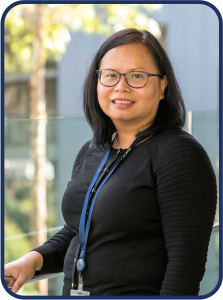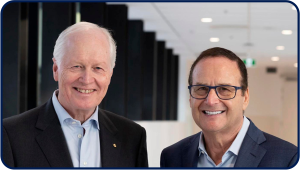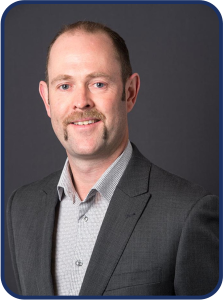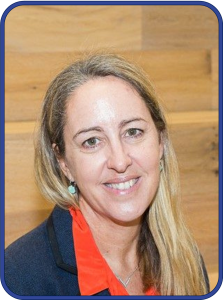2022 Game Changer Award Winner
These researchers and their teams are innovating and transforming how we do things in field of cardiovascular disease.
Professor Doan Ngo
 Advances in cancer therapies have led to a significant rise in cancer survivorship. However, cancer survivors are eight times more likely to develop cardiovascular conditions than the rest of the population as the use of anti-cancer drugs can be toxic to the heart. It’s estimated that over 2 million Australian cancer survivors will develop cardiovascular disease, making it the leading cause of long-term morbidity and mortality among cancer survivors.
Advances in cancer therapies have led to a significant rise in cancer survivorship. However, cancer survivors are eight times more likely to develop cardiovascular conditions than the rest of the population as the use of anti-cancer drugs can be toxic to the heart. It’s estimated that over 2 million Australian cancer survivors will develop cardiovascular disease, making it the leading cause of long-term morbidity and mortality among cancer survivors.
Professor Ngo’s research focuses on identifying drugs that can protect the cardiovascular system from the cardiotoxic effects of cancer therapies without reducing their anticancer benefits. In addition, Professor Ngo has been a key driver in establishing Australia’s first clinical cardio-oncology service that has served over 1500 patients in the last 4 years, leading to measurable improvements in patient outcomes and quality of life.
Her major breakthrough was the discovery that the anti-cancer drug, Bizantrene, has simultaneous anti-cancer and cardioprotective properties. She’s validated this discovery in cells and animals and will undertake a clinical trial in collaboration with an Industry partner, RACE oncology.
Professor Ngo is currently the Co-director of the Newcastle Centre of Excellence in Cardio-oncology, Deputy Chair of the Hunter Medical Research Institute’s Heart & Stroke Program, a Professor and Heart Foundation Future Leader Fellow.
2022 Translation Award Winner
From lab bench to real life, the research ideas and observations from these Finalists and their teams are improving the health of individuals and the entire community.
Professors Geoffrey Donnan AO and Stephen Davis AO
 Stroke is one of Australia’s biggest killers. It kills more women than breast cancer and more men than prostate cancer. To limit the catastrophic effects of stroke, fast and accurate diagnosis is essential to provide appropriate treatment. Ideally, treatment will be provided within the first ‘golden hour’. Determining the appropriate treatment requires brain imaging equipment that is often only found in larger hospitals, leading to a fundamentally inequitable access to care for those in rural or remote areas.
Stroke is one of Australia’s biggest killers. It kills more women than breast cancer and more men than prostate cancer. To limit the catastrophic effects of stroke, fast and accurate diagnosis is essential to provide appropriate treatment. Ideally, treatment will be provided within the first ‘golden hour’. Determining the appropriate treatment requires brain imaging equipment that is often only found in larger hospitals, leading to a fundamentally inequitable access to care for those in rural or remote areas.
Rather than transporting patients to hospital, Professors Geoffrey Donnan and Stephen Davis’ program of work has developed a solution to bring the stroke unit from the hospital to the patient, to treat them as early as possible. The development of a world-first mobile stroke unit (MSU) installed with game-changing technologies such as lightweight cutting-edge CT scanners, have enabled diagnosis and treatment within minutes of arrival to the patient.
The pilot MSU, which began in Melbourne, has significantly reduced time to treatment, something which is internationally associated with improved patient outcomes, treating 10 times the number of patients within the ‘golden hour’ as compared to those patients presenting via a standard ambulance.
Following the success of this program, the team looked at ways to bring this cutting-edge technology to more Australians, regardless of their postcode. To address the problem of rural and Indigenous inequity in accessing modern stroke therapies, they established the Australian Stroke Alliance. This initiative involves the development of ultra-lightweight brain imaging devices which may be deployed in either road or air ambulances, applying the principles of rapid stroke treatment outside metropolitan areas. The mobile platforms are linked by a novel digital cloud-based framework, the first of its type. This should revolutionise communication across the Australian continent.
Professors Geoffrey Donnan AO and Stephen Davis AO are neurologists and co-leads of the Australian Stroke Alliance and $40M MRFF Frontiers grant. Together, they also co-founded the Australian Stroke Clinical Trial Network.
Professor Geoffrey Donnan AO is currently a Professor of Neurology at the University of Melbourne. He is also the co-chair of the EXTEND group of trials.
Professor Stephen Davis AO is a Professor of Translational Neuroscience at the University of Melbourne and the Director of the Melbourne Brain Centre and the Royal Melbourne Hospital. He also co-chairs the Melbourne Mobile Stroke Unit program.
2022 Mentor Award Winners
These individuals have made ongoing and significant contributions to the research profession through outstanding mentoring. Mentorship rarely ‘counts’ in the tangible and traditional metrics of a career, but it matters and that’s what these Finalists and all our nominees recognise.
Professor Grant Drummond
 Professor Grant Drummond has engaged extensively in mentoring at the local, national and international level with more than 20 years of mentoring early career students and staff. As an early supporter of the ACvA mentoring program he has continued to mentor within the program since its launch. Grant’s values of fairness and equity are clearly demonstrated in his actions and how he supports his team to work flexibly and achieve their career goals.
Professor Grant Drummond has engaged extensively in mentoring at the local, national and international level with more than 20 years of mentoring early career students and staff. As an early supporter of the ACvA mentoring program he has continued to mentor within the program since its launch. Grant’s values of fairness and equity are clearly demonstrated in his actions and how he supports his team to work flexibly and achieve their career goals.
He is strongly motivated by legacy goals and his top priority is to contribute to the future of Australian cardiovascular research, not by his own personal contributions and achievements but through the quantity and quality of successful researchers of the next generation. He is generous with his time, especially helping and inspiring those facing challenges to achieve confidence and opportunities to change their lives and professional trajectories for the better.
One mentee says he has been instrumental for her to navigate the transitions throughout her career saying, “He is a trusted mentor because he always provides honest feedback with kindness. He is generous with his experience and kind in his approach.” Another mentee says, “Grant never hesitated to offer his support and identified resources to help me through some really tough times. It is because of Grant’s unwavering support that my career continued to progress despite significant personal challenges.”
Grant Drummond is Professor and Head of the Department of Physiology, Anatomy and Microbiology (PAM), and Co-director of the Centre for Cardiovascular Biology and Disease Research (CCBDR) at La Trobe University. His work is funded by the National Health and Medical Research Council of Australia and the Heart Foundation of Australia.
Professor Julie Redfern
 Professor Julie Redfern has a distinguished record of mentorship over three decades. She has been an outstanding mentor, supervisor and role model for more than 40 students and early career researchers across various disciplines. She is deeply committed to fostering career success of her mentees.
Professor Julie Redfern has a distinguished record of mentorship over three decades. She has been an outstanding mentor, supervisor and role model for more than 40 students and early career researchers across various disciplines. She is deeply committed to fostering career success of her mentees.
She has a clear vision of what is required to become an independent researcher and a strong sense of responsibility to support researchers to achieve it. She introduces her mentees to key experts in their fields, nominates them for prizes and recommends them for leadership roles. Many of Julie’s team have moved on to hold leading and influential leadership positions within their scientific communities in Australia and internationally.
One of her mentees said, “Julie has patiently invested her time and effort in teaching me skills and knowledge needed beyond her expected responsibilities. She taught me what is needed and how to achieve a well-rounded track record …. Julie empowered me to grow my network so I can run projects and publish with researchers outside of CVD. She helped me gain confidence in myself through tireless support and encouragement and by respecting my thoughts and asking for my advice on other’s projects.”
Julie Redfern is Professor of Public Health and NHMRC Investigator Grant L2 fellow. She is also a Physiotherapist, Research Academic Director in the Faculty of Medicine and Health at the University of Sydney and a Professorial Fellow at The George Institute. She is CIA of the NHMRC Synergy Grant (SOLVE-CHD), a Co-Director of the ACvA Implementation and Policy Flagship and Co-chair CSANZ Clinical and Preventative Cardiology Council and member of the CSANZ Scientific Committee.
Press Release
Read the press release on the Awards 2022 here.
